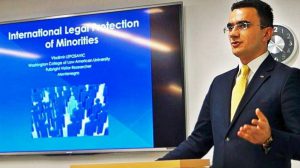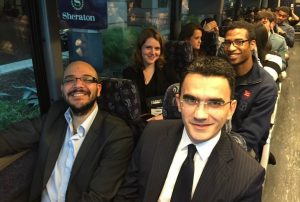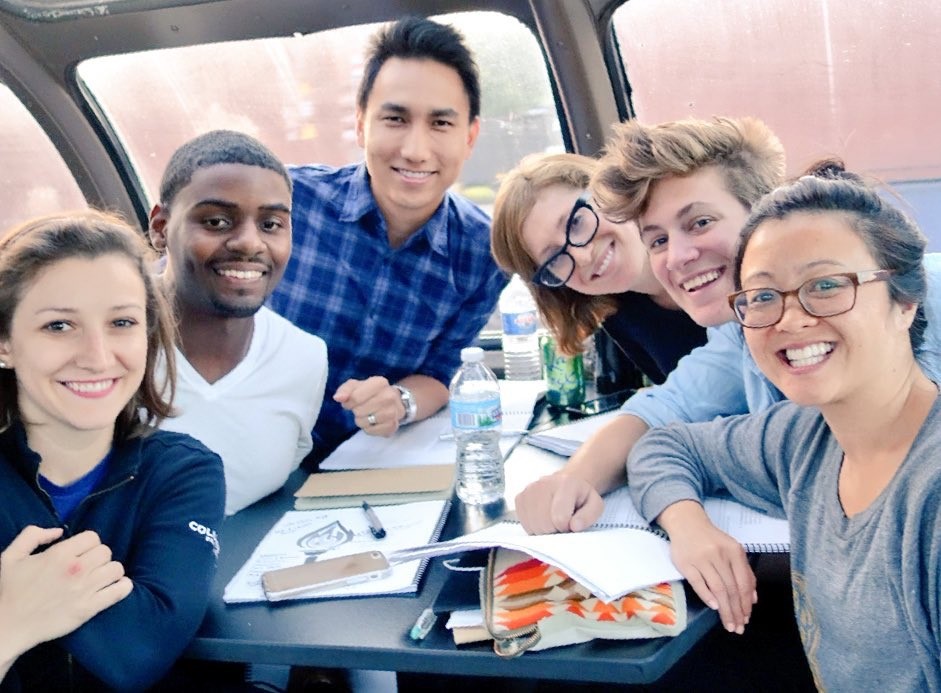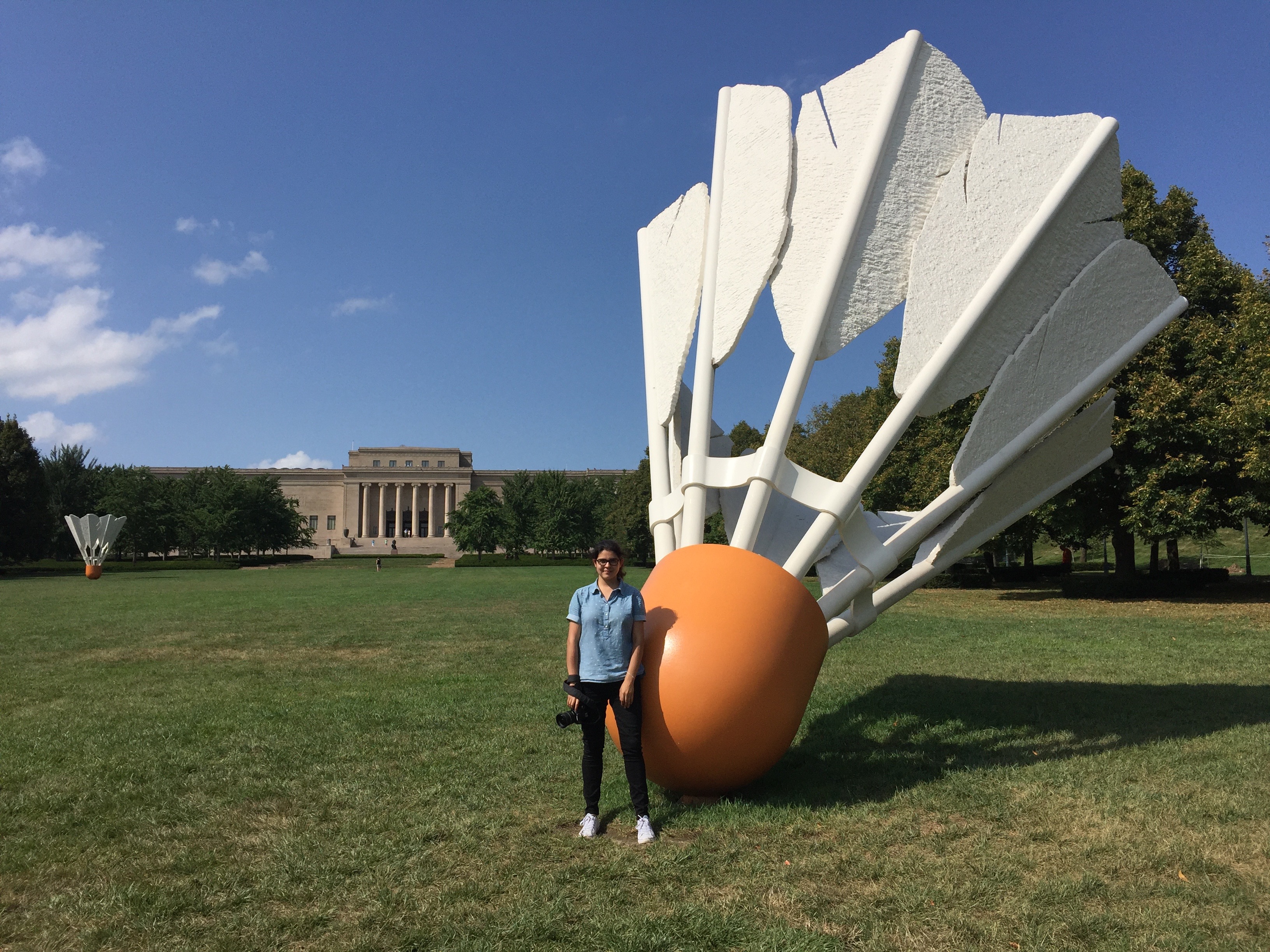
Vladimir Leposavic, 2014-2015, Montenegro, giving a presentation at the Institute of International Education Washington, DC office
In 2014, I was selected to spend an academic year as a Fulbright Foreign Student Visiting Researcher, representing Montenegro, in the United States. My basic goal was to conduct research in international human rights; more specifically, on the international legal protection of minorities at the American University Washington College of Law (WCL). Moreover, I also had an opportunity to participate in a pre-academic summer program at the University of Kansas; consequently, my Fulbright experience started early in summer 2014.
As a PhD candidate at the Belgrade University, I had already been working on topics such as the international legal protection of national and ethnic minorities which is, in spite of its European origins, also a global phenomenon as well as a political and legal issue. Millions of people are living outside of their home countries or in so-called kin-states. The start of the Second World War was justified by the need for protecting one minority, but ended in the horrific extermination of another. In today’s world, more than five-thousand national or ethnic groups live in just about 150 states. In addition, some social experiments show that, even in situation of random grouping, more than 75% of group members tend to engage in different types of discriminatory behaviors toward others. These facts illustrate the social and scientific need for dealing with the subject of inter-group relations and minority protection.
During my time in Washington, DC, I utilized all the available literature, materials, and relied on my mentors and colleagues’ assistance to thoroughly examine my chosen topic. Beyond the topic of my thesis, my specialization in human rights law at WCL enabled me to gain insights that informed and will determine my future work. In fact, my work has now extended to the field of legal mechanism for the protection of all minority groups – including political, sexual and social minorities. Ultimately, these fields and these mechanisms protect the freedom and rights of the individual who is, in fact, the smallest and “first” minority.

Vladimir Leposavic, 2014-2015, Montenegro (right), in a bus with fellow Fulbrighters departing for the opening dinner of Austin Enrichment Seminar held for first-year Fulbright Foreign Students
Another matter that was of the utmost importance for me during my Fulbright grant was to enrich my experience by engaging with local communities whenever I had a chance. Starting with the opportunity to live with four Americans and learn from them, to attending different professional and social events, to playing with an amateur soccer league, my community engagement experiences allowed me to meet wonderful people beyond those I met through my research.
Being a member of the Fulbright community is a great privilege, but also an obligation to continue developing your potential so that you can eventually consider yourself a citizen of the world.
My advice to all applicants and future Fulbright Foreign Students is to be determined in how you approach the entire experience and reapply if you aren’t offered a grant. The experience of being a Fulbright Student starts with the application process. When it comes to choosing a state and university in the United States – there is simply no wrong path. Rather than letting your desired location and/or institution be the determining factor, I would focus on all the new things you want to learn and better understand during your Fulbright grant. As many pre-determined tasks will await you upon your arrival, your free time should be planned in a way that will allow you to fully immerse yourself in activities that you consider to be the most important for your future development.



No Comments